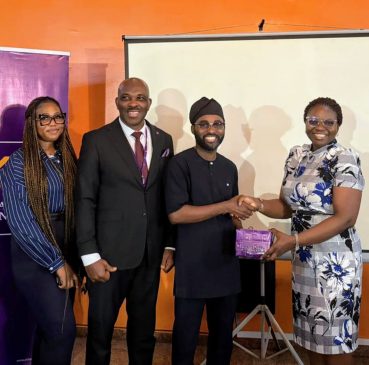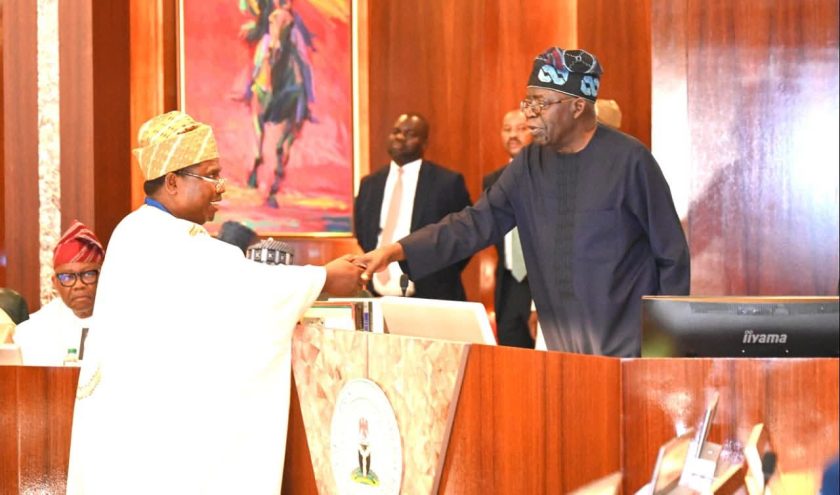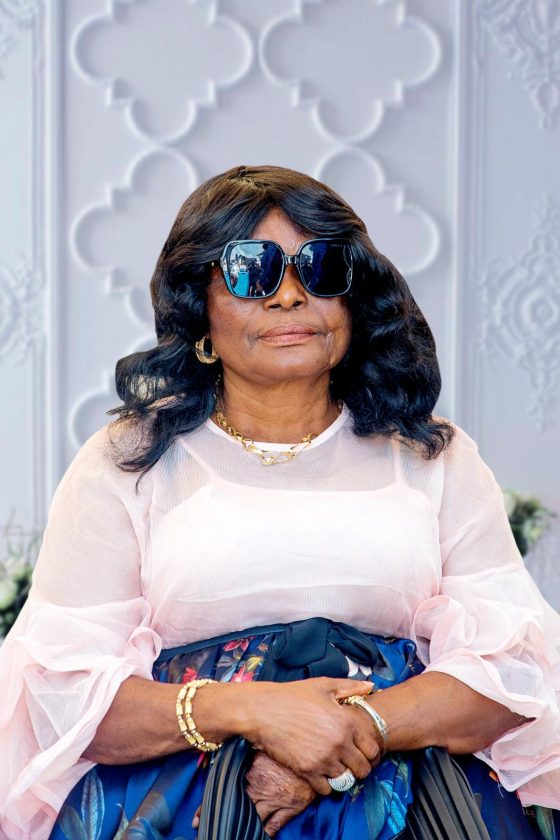*L-R: Miss Adaku Sharon Nwankwo, Digital PR Executive, Polaris Bank Limited, Mr. Rasheed Bolanriwa, Acting Head, Brand Management & Corporate Communications, Polaris Bank; Mr. Abayomi Adisa, Senior Journalist, BBC and Mrs. Bukola Oluyadi, Group Head, Customer Experience & Value Management at Polaris Bank during the hybrid capacity-building seminar organised by the Bank for journalists in Lagos recently.
Polaris Bank Limited recently hosted a hybrid capacity-building seminar for approximately 500 journalists both in Nigeria and internationally. The seminar, themed “Empowering Journalists in the Digital Age: Storytelling, Tools & Transformation,” aimed to equip media professionals with the skills and knowledge necessary to thrive in today’s rapidly changing journalism landscape.
In a welcome address, Rasheed Bolarinwa, Head of Brand Management & Corporate Communications at Polaris Bank, highlighted the bank’s longstanding tradition in media education. He pointed out that Polaris Bank has been investing in such initiatives for the past 12 years and confidently stated that the bank has been in the vanguard in digital capacity building for the Nigerian media. Bolarinwa stressed that enhancing the skills of journalists ultimately benefits society as a whole.
Drawing from a well-known Chinese proverb, he explained that the bank prefers to teach people how to fish rather than simply giving them fish to eat. Empowering journalists to become self-sufficient, he said, is the guiding principle behind the Polaris bank’s executive management annual approval and support of the seminar.
The media seminar featured training sessions led by two prominent journalists: Mr. Taiwo Obe, Founder and Director of The Journalism Clinic, and Mr. Abayomi Adisa, a senior journalist with BBC. Obe reminded participants of the fundamental purpose of journalism, quoting veteran American journalist Tom Rosenstiel: “The purpose of journalism is to provide citizens with the information they need to make the best possible decisions about their lives, their communities, their societies, and their governments.”
Obe discussed the significant transformation journalism has undergone since the early 2000s, driven by technological innovation. He highlighted the emergence of mobile journalism (Mojo), which allows journalists to capture, produce, and share news content in real-time. Obe mentioned Reuters’ 2007 introduction of the Mojo Toolkit, which included the Nokia N95, a small tripod, compact wireless keyboard, solar charger, and external microphone, as a milestone that made it easier for reporters to deliver news on the go.
He encouraged journalists to explore and utilize a variety of free digital applications available on the Google Play Store. By embracing these tools, journalists can go beyond traditional text-based reporting and incorporate audio, video, and interactive graphics to tell more compelling stories. Obe also highlighted the growing adoption of artificial intelligence in Nigerian newsrooms, noting that AI is now being used for tasks such as copy editing, content illustration, content strategy, and advertising targeting, which opens new avenues for efficiency and creativity in journalism.
He further advised journalists to leverage the data from their news stories in innovative ways, suggesting that they transform story data into guidebooks, archival material, issue analyses, position papers, recommendations, puzzles, Q&As, and even inspiration for full-length books.
Meanwhile, Mr. Abayomi Adisa, who focused his presentation on writing for social media, urged participants to harness the magic of making their audiences stop, engage, and share their posts. Adisa outlined key strategies for crafting effective posts and teasers, ensuring that the content is personal, relevant to the audience, engaging, shareable, and concise. He acknowledged that social media is an environment characterized by distraction and noise, so content must be both influential and personally resonant to capture attention.
Speaking at the seminar, Mrs. Bukola Oluyadi, Group Head of Customer Experience & Value Management at Polaris Bank, during her closing remarks emphasized the bank’s commitment to supporting the media industry. She remarked that these seminars are crucial, as no industry or organization can flourish without the involvement and backing of the media.
Oluyadi stated that capacity building is not a one-time effort but a continuous process. She noted, “People cannot improve with the status quo of yesterday; we need to keep building.” According to her, the bank is dedicated to sustaining this initiative annually, fully aware that consistent investment in the media is essential for long-term growth and sustainability.




